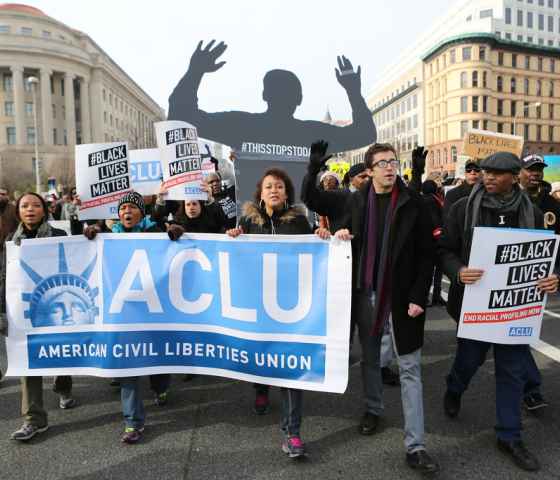By Nicole Kief, ACLU & Jennifer Bellamy, Washington Legislative Office at 12:45pm
You may have heard recently about Dontadrian Bruce, the Mississippi high school student who was almost expelled for holding up the number "3" with his fingers in a photo taken by his science teacher. Dontradian is number 3 on the football team – and despite his being an A/B student with no history of serious disciplinary problems, the school said he was making a gang sign.
This isn't the first time the school district has been quick to label a Black student a "gang member." And in fact the unnecessarily harsh treatment of students of color for misbehavior—or perceived misbehavior—at school is a huge problem across the country. Too many young people are being pushed out of school and into the juvenile and criminal justice systems instead of given the chance to learn from their mistakes. This phenomenon is frequently referred to as the school-to-prison-pipeline.
New data from the federal government, released on Friday, shows just how serious the problem is—and highlights how students of color and those with disabilities are being systematically denied access to education. According to the new data, during the 2011-2012 school year, Black students were suspended and expelled at a rate three times greater than white students. And students with disabilities were more than twice as likely to receive an out-of-school suspension than their non-disabled peers. Both groups of students were also disproportionately likely to be referred to law enforcement and arrested at school.
To add further insult to injury, kids barely out of diapers are also being subjected to these harsh racially disparate forms of exclusionary discipline. The new data shows that Black preschoolers are more likely to face suspension. Black students represent only 18 percent of preschool enrollment, but make up 42 percent of students suspended once, and 48 percent of the students suspended more than once.
One could assume these statistics are the result of Black kids misbehaving more, but that's just not substantiated by facts. As experts at Indiana University recently pointed out, "the data are consistent: there is simply no good evidence that racial differences in discipline are due to differences in rates or types of misbehavior by students of different races." These experts also point out that disparities are often greatest for subjective offenses—like "disrespect"—rather than objective ones—like smoking.
What we do know to be true, however, is that keeping kids out of school will harm them – by making them more likely to fail classes, drop out and become involved with the juvenile justice system. We also know that several promising interventions exist that can help keep kids in school and reduce racial disparities in discipline.
Let's use them, because we need sensible school discipline policy not smaller handcuffs.
Learn more about the school-to-prison-pipeline and other civil liberty issues: Sign up for breaking news alerts, follow us on Twitter, and like us on Facebook.
